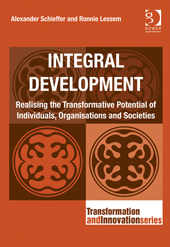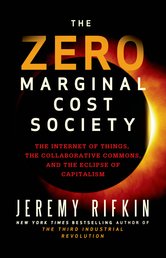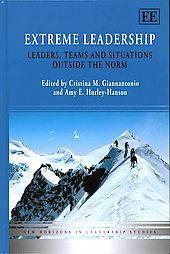The Election and the Indian Psyche
Ashok Malhotra & Raghu Ananthanarayanan
India is at an inflexion point. An old civilization is coming to terms with modernity. At Sumedhas Academy for Human Context (www.sumedhas.org) we have been examining the nature and processes of the Indian Psyche with deep interest. As India takes steps towards development, it draws energy from its psyche and impacts it in many significant ways. We have used the frame work developed by Ashok Malhotra (one of the …

 Schieffer and Lessem introduce a ground-breaking development framework and process to address the most burning issues that humanity faces. While conventional top-down, outside-in development has reached a cul-de-sac, a new, integral form of development is emerging around the world. Integral Development uniquely articulates this emergent approach, and invites us to fully participate in this process. Integral Development combines four mutually reinforcing perspectives: nature and community; culture and spirituality; …
Schieffer and Lessem introduce a ground-breaking development framework and process to address the most burning issues that humanity faces. While conventional top-down, outside-in development has reached a cul-de-sac, a new, integral form of development is emerging around the world. Integral Development uniquely articulates this emergent approach, and invites us to fully participate in this process. Integral Development combines four mutually reinforcing perspectives: nature and community; culture and spirituality; …
 Mark Gilbert creates an easy to follow and comprehend experience of understanding our personal worldview and how that fulfills our mission on the planet. He states his premise quite clearly when he writes, “You and I are on a journey. Everyone is. We are on a spiritual, evolutionary journey. This book is about understanding that journey, how it plays a role in your life, …
Mark Gilbert creates an easy to follow and comprehend experience of understanding our personal worldview and how that fulfills our mission on the planet. He states his premise quite clearly when he writes, “You and I are on a journey. Everyone is. We are on a spiritual, evolutionary journey. This book is about understanding that journey, how it plays a role in your life, …
 Trompenaars, Fons and Ed Voerman. Servant Leadership Across Cultures – Harnessing the Strength of the World’s Most Powerful Management Philosophy. Infinite Ideas Ltd, Oxford, UK:2009. 190 pp.
Trompenaars, Fons and Ed Voerman. Servant Leadership Across Cultures – Harnessing the Strength of the World’s Most Powerful Management Philosophy. Infinite Ideas Ltd, Oxford, UK:2009. 190 pp. Giannantonion, Christina M. and Aky E. Hurley-Hanson (Eds). Extreme Leadership – Leaders, Teams and Situations Outside the Norm. Edward Elgar: Cheltenham, UK-Northampton, MA, USA. 2013.
Giannantonion, Christina M. and Aky E. Hurley-Hanson (Eds). Extreme Leadership – Leaders, Teams and Situations Outside the Norm. Edward Elgar: Cheltenham, UK-Northampton, MA, USA. 2013. and Yvonne Sell. Leadership 2030: The Six Megatrends You Need to Understand to Lead Your Company into the Future. AMACOM: New York, 244 pp.
and Yvonne Sell. Leadership 2030: The Six Megatrends You Need to Understand to Lead Your Company into the Future. AMACOM: New York, 244 pp.